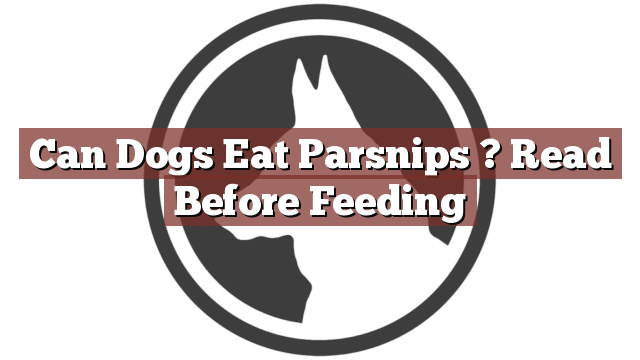Understanding Your Dog’s Dietary Needs
When it comes to feeding our furry friends, it’s essential to understand their dietary needs. Dogs are omnivorous animals, which means they can eat a variety of foods, including both meat and vegetables. However, not all vegetables are safe for dogs to consume, and it’s crucial to be aware of which ones are suitable for their digestive system. One common question that dog owners often ask is, "Can dogs eat parsnips?"
Can Dogs Eat Parsnips? Read Before Feeding
Yes, dogs can eat parsnips in moderation. Parsnips are root vegetables that are packed with essential nutrients such as fiber, vitamins C and E, and potassium. These nutrients can provide some health benefits for your canine companion. However, it’s important to note that parsnips should only be given to dogs as an occasional treat and not as a regular part of their diet. While parsnips are generally safe for dogs to eat, it’s crucial to feed them in small quantities and in a cooked form. Raw parsnips may be difficult for dogs to digest and can cause gastrointestinal distress.
Pros and Cons of Feeding Parsnips to Dogs
Feeding parsnips to your dog can have both advantages and disadvantages. On the positive side, parsnips are low in calories and fat, making them a healthy alternative to other high-calorie treats. They are also a good source of dietary fiber, which can help regulate your dog’s bowel movements and promote a healthy digestive system. Additionally, the vitamins and minerals found in parsnips can contribute to your dog’s overall well-being.
However, it’s important to be aware of the potential drawbacks of feeding parsnips to your dog. Some dogs may have a sensitive digestive system and may experience stomach upset or diarrhea after consuming parsnips. To avoid any adverse reactions, it’s best to introduce parsnips slowly into your dog’s diet and monitor their response. If your dog shows any signs of discomfort or digestive issues, it’s best to discontinue feeding them parsnips.
Conclusion: Considerations for Feeding Parsnips to Your Dog
In conclusion, parsnips can be a safe and nutritious treat for your dog when given in moderation and cooked form. While dogs can eat parsnips, it’s essential to consider their individual dietary needs and any sensitivities they may have. Always consult with your veterinarian before introducing any new foods into your dog’s diet. Remember that a balanced and complete diet, consisting mainly of high-quality dog food, is crucial for their overall well-being.
Thank you for taking the time to read through our exploration of [page_title]. As every dog lover knows, our furry friends have unique dietary needs and responses, often varying from one canine to another. This is why it's paramount to approach any changes in their diet with caution and knowledge.
Before introducing any new treats or making alterations to your dog's diet based on our insights, it's crucial to consult with a veterinarian about [page_title]. Their expertise ensures that the choices you make are well-suited to your particular pet's health and well-being.
Even seemingly harmless foods can sometimes lead to allergic reactions or digestive issues, which is why monitoring your dog after introducing any new food item is essential.
The content provided here on [page_title] is crafted with care, thorough research, and a genuine love for dogs. Nevertheless, it serves as a general guideline and should not be considered a substitute for professional veterinary advice.
Always prioritize the expert insights of your veterinarian, and remember that the health and happiness of your furry companion come first.
May your journey with your pet continue to be filled with joy, love, and safe culinary adventures. Happy reading, and even happier snacking for your canine friend!

